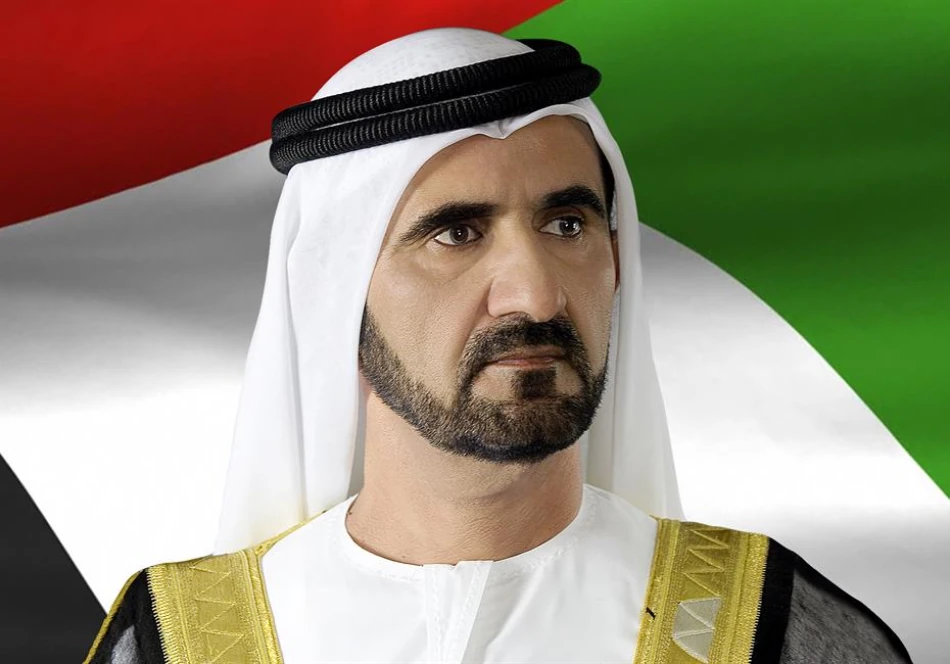
Dubai residents can now resolve construction disputes with new law issued by Sheikh Mohammed
Dubai Launches Fast-Track Dispute Resolution System for Citizen Housing Projects
Dubai has introduced a specialized legal framework designed to resolve construction disputes for citizen housing projects within 20-50 days, bypassing traditional court proceedings. The new law, issued by Sheikh Mohammed bin Rashid Al Maktoum, establishes an alternative dispute resolution mechanism that prioritizes project continuity and timely delivery over lengthy litigation processes.
A Strategic Response to Construction Industry Challenges
The legislation addresses a critical vulnerability in Dubai's ambitious housing development programs. Construction disputes typically consume months or years in traditional court systems, often stalling projects and inflating costs. By creating a dedicated resolution pathway, Dubai aims to protect both homeowners and contractors from the cascading effects of prolonged legal battles.
This approach reflects Dubai's broader strategy of regulatory innovation to maintain its competitive edge in real estate and construction sectors. The emirate has consistently pioneered legal frameworks that balance investor protection with project efficiency, from its pioneering escrow laws to specialized real estate courts.
How the New System Works
Two-Tier Resolution Process
The law establishes a specialized branch within Dubai Courts' Amicable Settlement Center, operating as an independent facility with integrated services. The process unfolds in two distinct phases:
Phase One: Mediation - Experienced mediators from government and private sectors attempt to broker settlements within 20 days, extendable by mutual agreement. These mediators possess specialized expertise in construction-related disputes, ensuring technically informed resolutions.
Phase Two: Expert Panel Decision - If mediation fails, a three-member committee comprising one judge and two technical experts renders binding decisions within 30 days. Parties retain the right to appeal to primary courts within 30 days of the ruling.
Scope and Implementation
The system covers all disputes arising from citizen housing construction contracts where property owners are direct parties. The law takes effect January 1, 2026, providing a transition period for system establishment and stakeholder preparation.
Market and Investor Implications
For contractors and developers, the new framework offers significant risk mitigation. Faster dispute resolution reduces carrying costs, improves cash flow predictability, and enables more accurate project scheduling. This could translate into more competitive bidding for citizen housing projects and potentially lower construction costs.
Real estate investors and homebuyers benefit from enhanced delivery certainty. The emphasis on maintaining contractual relationships rather than severing them through adversarial litigation preserves project momentum and reduces abandonment risks.
Regional Context and Global Trends
Dubai's initiative aligns with international best practices in construction dispute resolution. Singapore's Building and Construction Industry Security of Payment Act and the UK's Housing Grants, Construction and Regeneration Act both emphasize rapid dispute resolution to maintain industry liquidity and project continuity.
However, Dubai's approach is more comprehensive than many international models by integrating mediation and expert determination within a unified court-annexed system. This hybrid model could serve as a template for other Gulf states grappling with similar construction sector challenges.
Long-term Strategic Impact
The legislation represents more than procedural reform—it signals Dubai's commitment to citizen welfare as a governance priority. By specifically targeting disputes involving citizen homeowners, the law acknowledges the social and political importance of housing security in maintaining social stability.
The success of this system could influence broader judicial reform in the UAE, potentially extending similar fast-track mechanisms to commercial construction disputes and other sectors where project continuity is economically critical.
For Dubai's construction industry, the law creates competitive advantages by reducing systemic risks that often deter international contractors and investors. Combined with the emirate's existing legal protections, this framework reinforces Dubai's position as a preferred destination for large-scale development projects in the Middle East.
Most Viewed News

 Sara Khaled
Sara Khaled






